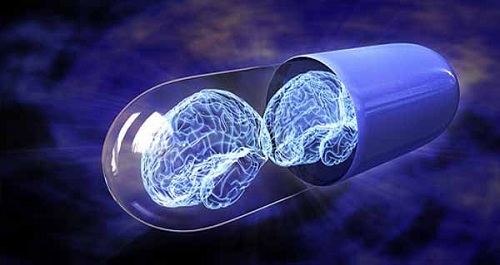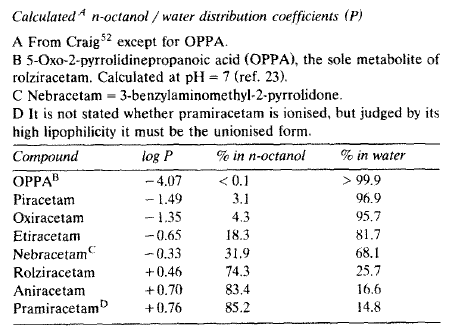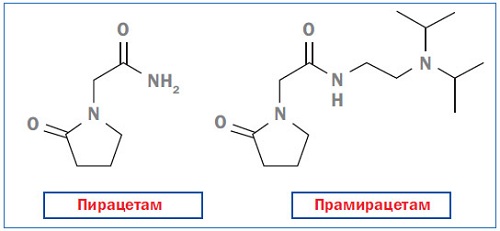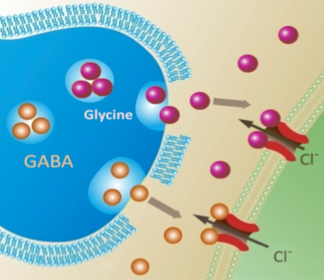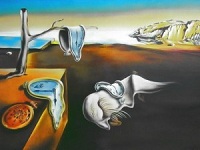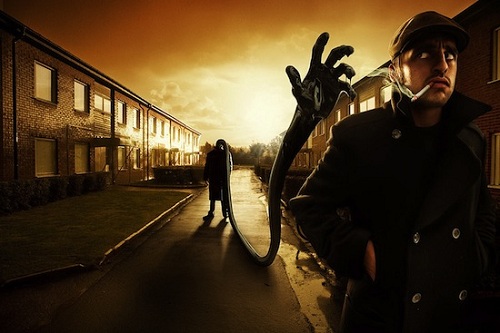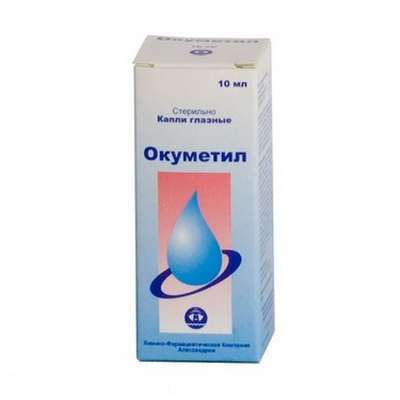16 Dec 2016
You are on the site dedicated to brain development, the development of intelligence in all its manifestations. And now starts the release cycle of the main neurotransmitters. You will learn what are the neurotransmitters, how they work, when they work, their advantages and disadvantages.
The mechanism of the brain work
The amount of information about the neurons and neurotransmitters, since opening, has increased exponentially.
Nerve cells of the central nervous system - are those particles, which consists of the brain. Nerve cells "communicate" with each other through neurotransmitters, there is a small space, called the synaptic cleft between nerve cells. This is the passage between the cars on the train where the cars - a nerve cell.
Also we will mention today presynaptic and postsynaptic ending, as you might guess, is that "before and after" the synaptic cleft. Let it will be lobbies, between which passage.
Let the people be neurotransmitters. The above presented scheme is very, very simple, and it is designed to introduce! This is just a skeleton, but there is also fat, muscles, joints, etc.
Suppose, in the train were musicians and they play something in the style of Radiohead or The Beatles, ie a peaceful and beautiful music, they do not play in the vestibule or in the bridge between the cars, in the synaptic cleft in pre- or postsynaptic end, they only act on the nervous cell, and the cell becomes more quiet, then the same happens with the next and so on. Our musicians - it is calming neurotransmitters.
We continue. Neurotransmitters are either in a single neuron, or act on it from the outside, like adrenaline, for example. They then accumulate in the presynaptic terminal, where part of "fly" into the synaptic cleft, and where their catches 2nd neuron, absorbing in the postsynaptic ending.
What do neurotransmitters?
Very interesting question, they respond to the way you act with the world around you, it all goes through the multilayer filter of individual plants, through lifestyle and psychology. In addition, create neurotransmitters are responsible for human behavior. For example, an accident happened to you in the street X, the brain remember it through the glutamate and adrenaline. Then, passing this place again, even without the accident, the brain will remind the previous negative situation, do not worry there is no Ie, but the behavior is changing under the influence of memories. Similarly it happens with the positive. Maybe in the same accident, someone else did not hurt, but the rest of the day spent in a good mood with bright emotions.
Ie, these materials allow us to estimate the world through the prism of their own plants. If you are a true vegan, then at the sight of a juicy piece of meat, you will be a feeling of disgust and draw pictures as cruel killing of animals to a fat man got more excess food. If you are a meat-eater, why do think you need to quickly try it until a fragrance spreads.
The greater the judge of neurotransmitters - the more you realize that there is no good or bad events, except outright negative, and there is the way the brain perceives these events! This is a separate interesting topic, which will plot.
The main representatives of neurotransmitters
Now we put aside the attitude of every person to a specific question, as in the question "To eat meat or not," that was not different emotions. And concentrate on the fact that there are similarities in each neurotransmitter.
GABA - inhibitory neurotransmitter type, which perfectly "jamming" excessive excitement. For example, if you have, say, tomorrow is an important day, it is usually difficult to sleep at night, this is due to an excess of glutamate and other natural stimulants body. In this case, it is important to "cool down" to calm down, relax, concentrate, and helps in the GABA. If it is conditionally little – man is restless and irritable. You can find it in Picamilon and Ladasten.
Glutamate is antipode of GABA. The main excitatory neurotransmitter, this is it does not allow you to sleep on a pair or at work, acts on the NMDA and AMPA receptors. Especially a lot of it during periods of stress and nervousness. Glutamate helps to learn! Usually a little choleric initially overestimated the mediator, so they grasp the information, as they say, on the fly, if you have the desire and the normal development of other mediators.
Glycine is the younger brother of GABA, always to the rescue. Acts on the NMDA receptors, glutamate and the like, also helps to absorb information. On the body operates smoothly, not cut down, it does not cause drowsiness and lowers the heart rate, pressure, slows the transmission of signals to the limbs, causing "a glycine 'actions become smooth. Its concentration is partially regulated by the biorhythms, closer to a dream it anymore.
Dopamine - the main motivator, makes you wait, hope. That strange feeling when tomorrow will be a mega interesting day, in the evening you are lying in bed and can not sleep, fantasize, plan - it is dopamine. On the one hand, it is not excitement, you do not want to move, but there is almost no desire to sleep. If the condition to send to school, if it is present every day - though mastered Chinese, even the piano. Most stimulant drugs affect primarily on dopamine.
Acetylcholine - Helps to learn and memorize. Acetylcholine do not care what you learn: playing dota, Maths analysis, meet girls or turn the sun on the bar. It reinforces the experience! What it is, the better to assimilate the information. A good half of nootropics, especially racetam, working with it, hence the effects are taken like "Memory" and "learning.
Adrenaline is a stress hormone produced by the adrenal glands, and then enters the bloodstream and brain. Adrenaline actually increases strength and endurance, but for a certain period, but the brain of it is better not to work, perhaps even worse. But this hormone at copes with the task to survive, no matter where it was.
Norepinephrine - we can say that it is a positive and sensible adrenaline. Norepinephrine "sit like on the needle" and all fans of extreme sports gamblers. In action, it is a combination of dopamine and adrenaline. That feeling when you want to scream, to dance, to sing, when there is nothing impossible. Ie, it is not euphoria, not happiness, but superbright events that are remembered: an unusual meeting, a trip to the "American" roller coaster, jumping with a parachute, performance at any sporting or non-sporting competitions, a feeling before the aircraft take-off, climb the rock, and so on .d. In all these states, on the one hand, scared and anxious (no euphoria), but on the other - you feel very cool.
Serotonin - a neurotransmitter and a hormone responsible for the enjoyment of life, and yet in many public things. Lack of serotonin is associated with depression. But the causes of depression, in addition to the objective, to the end is unknown. It is believed that if you eat right, talk with people (friends of the opposite sex), doing vigorous activity and spend a lot of time in the sun - that serotonin you everything is fine. In terms of brain chemistry - this is happiness. As serotonin is responsible for the pain threshold. The happier you are, the more pain you will endure. However, many of serotonin, too bad, it is called Serotonin syndrome, plus the fact that it is almost impossible to get without pills.
Bottom line:- neurotransmitters - it is a separate system in the body, which helps to better adapt to life on the basis of individual experience and expertise, the exact number is still not known;
- "Bad" and "good" - a subjective concept for any organism.
- "In terms of brain chemistry - this is happiness." Happiness is primarily dopamine. Those who drank antidepressants tied to serotonin know that serotonin does not give joy, not uplifting. whether it affects the mood? Yes, it does. He removes it. It makes no. Serotonin is a neurotransmitter brake. It soothes. With that he manages perfectly well. Removes the alarm. But the joy, happiness, euphoria - a dopamine in the limbic system (which is in it for other systems gives other effects).


 Cart
Cart

